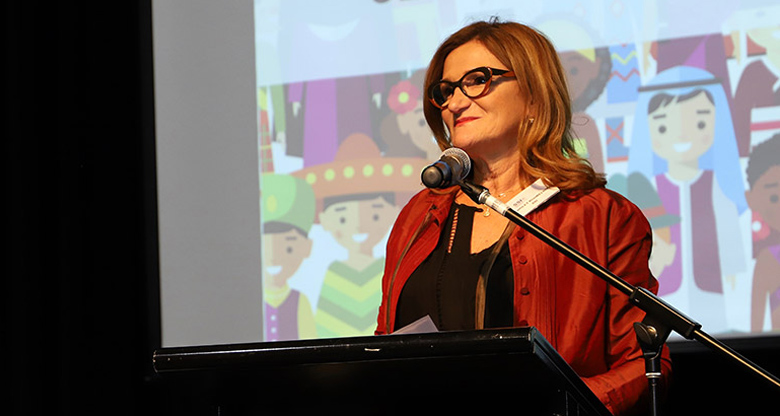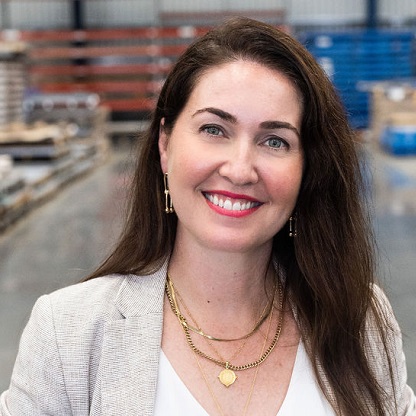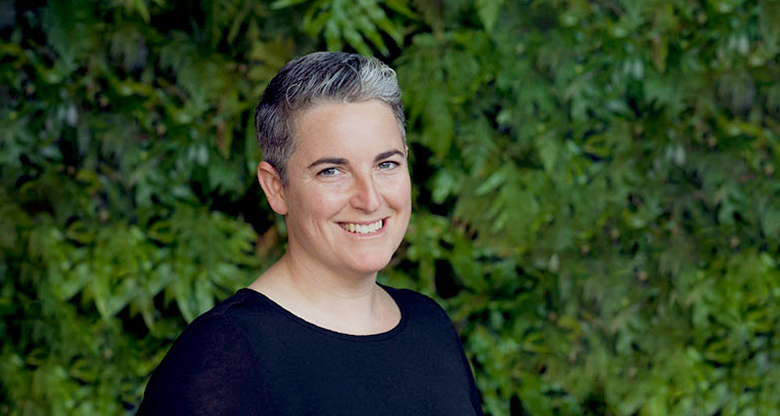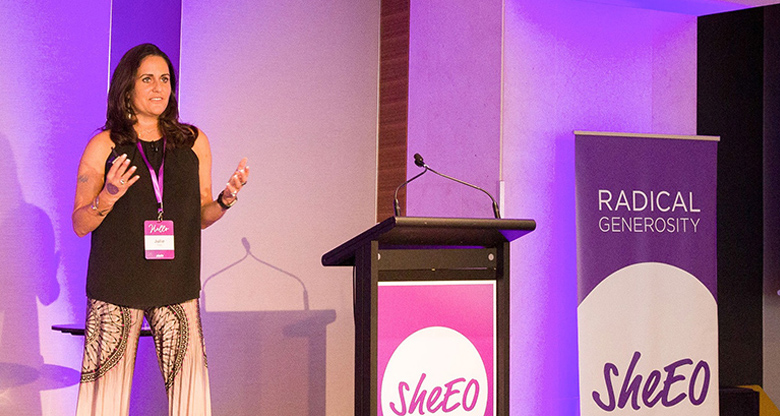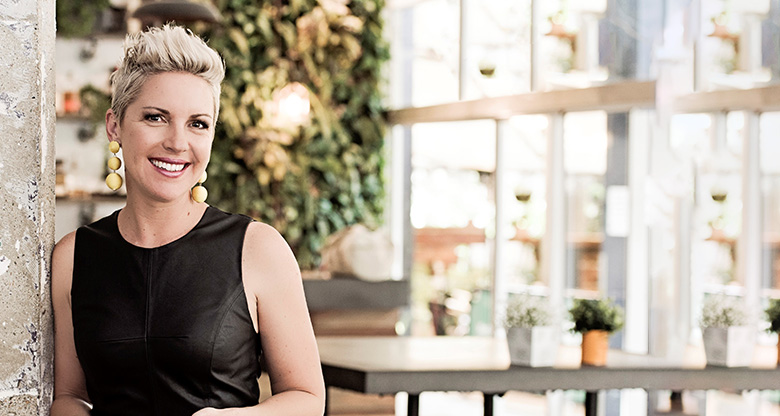Violet Roumeliotis AM joined SSI as Chief Executive Officer in 2012 when the organisation had one flagship program, Humanitarian Settlement Services (HSS), and $9.4 million in revenue. Today revenue is $115 million, and SSI runs 17 programs. Along with refugees, SSI now supports people with disability, people experiencing unemployment, entrepreneurs, people seeking asylum, children in foster care, young people, and migrants.
Along with government-funded services, SSI draws on feedback from its client communities to identify unmet needs and invest in initiatives to close these gaps. In the past five years, SSI and its partners have invested more than $5 million in initiatives that add value to its contracted programs.
Malini Raj, CommBank Head of Strategy Multicultural Community Banking, comments “I have seen the value of partnership and collaboration between CBA and SSI, and how well these initiatives address a real need in vulnerable communities. COVID has impacted everyone, but specifically the vulnerable cohort that SSI serve. They are reliant on community donations, and our 2020 CommBank Community Grant has been very much welcomed.”
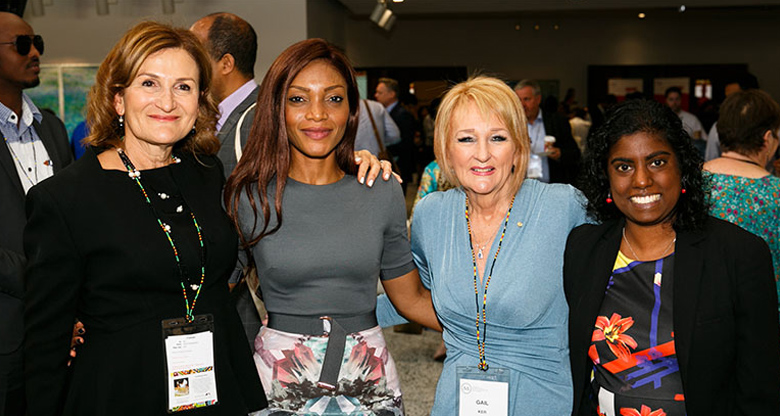 Image source: supplied. Left to right: Violet Roumeliotis (CEO SSI), Tolu Olubunmi (Keynote speaker Metropolis Conference), Gail Ker (CEO Access Community Services), Malini Raj (Head of Strategy Multicultural Community Banking)
Image source: supplied. Left to right: Violet Roumeliotis (CEO SSI), Tolu Olubunmi (Keynote speaker Metropolis Conference), Gail Ker (CEO Access Community Services), Malini Raj (Head of Strategy Multicultural Community Banking)
According to Violet, working in an ever-changing environment and servicing clients with unique and complex needs means SSI needs to maintain a high degree of flexibility and adaptability.
Reflecting its approach and the breadth of its constituency, SSI seeks diversity of skills and experience in its workforce. Violet says staff must be able to operate in times of uncertainty, necessitating agility and the ability to innovate. “Today we need a workforce that is emotionally intelligent, able to solve complex problems, take risks, make decisions with minimal information and operate in complexity,” Violet says.
Attracting these people requires purposeful and inclusive wording in job ads. Traditional recruitment channels are also supplemented with social media, community networks and SSI’s own internal and external relationships. Throughout the recruitment process SSI considers the whole person, which means candidates from diverse backgrounds are not overlooked because of a lack of local experience or qualifications.
“We often speak to candidates with great life experience, formal qualifications and skills that may not be recognised in Australia,” Violet says. “When developing our training programs, we also ensure that this is reinforced. We build on our people’s strengths and we value competencies and capabilities gained through lived experience.”
Violet explains that SSI’s three-yearly strategy planning process is an example of leadership development in action. Staff members work in non-hierarchical and non-programmatic teams to execute strategic goals. This process requires nuanced and honed interpersonal skills and a capacity to collaborate and perform at a high level. “It also requires staff to, at times, hold hard conversations with peers,” Violet says.
“This tailored on-the-job leadership development is a really wonderful way of engaging people through their strengths and interests and encourages staff to work outside of silos. This approach is valuable should government policy change, requiring people to adapt their skills to work with different clients on different programs.” Violet says.
Mentoring is another large part of how SSI develops its people, and the organisation has recently invested in technology that is enabling 25 mentoring pairs to be guided through a comprehensive program. Ensuring that all staff benefit from leadership development, SSI has also invested in Achieve@SSI where leaders and their direct reports are tasked with identifying their professional career aspirations, which are discussed monthly and tracked so that people can see their careers progress.
Violet doesn’t support a blanket approach to workforce training which challenged SSI when scaling its development programs as its workforce grew from 60 to more than 1,000. But as staff articulated their needs, some consistencies emerged allowing SSI to build on them. Violet calls it “scaffolding”.
Staff members are further supported by SSI’s Be Well program, which includes workshops on being good listeners and taking responsibility for wellbeing, training and development
Violet is excited about change, the need for SSI to disrupt itself and technology’s potential to provide opportunities and push boundaries. “We could be engaging with someone in a camp in Jordan with a phone and an app and be speaking to them in their own language. So, we must be able to teach people to embrace technology and make it available and workable,” Violet added.
During her recent acceptance of Australia Day honours (being appointed a Member of the Order of Australia), Violet reflected on cultural expression, “That capacity to live with and appreciate an array of beliefs, cultures and perspectives is a thing of great value.” Her hope is that “when we next come together in a celebration of national unity, it is one that includes all the voices, beliefs, aspirations and experiences that add to the rich multicultural mosaic of our nation”, and we adopt a people-first approach in our actions as well as our businesses.
Parts of this article were originally published as ‘A people-first approach’ in the 2019 CommBank Women in Business Insights report.
Sign up to the Women in Focus newsletter for updates on our community and events, and more content like this.
